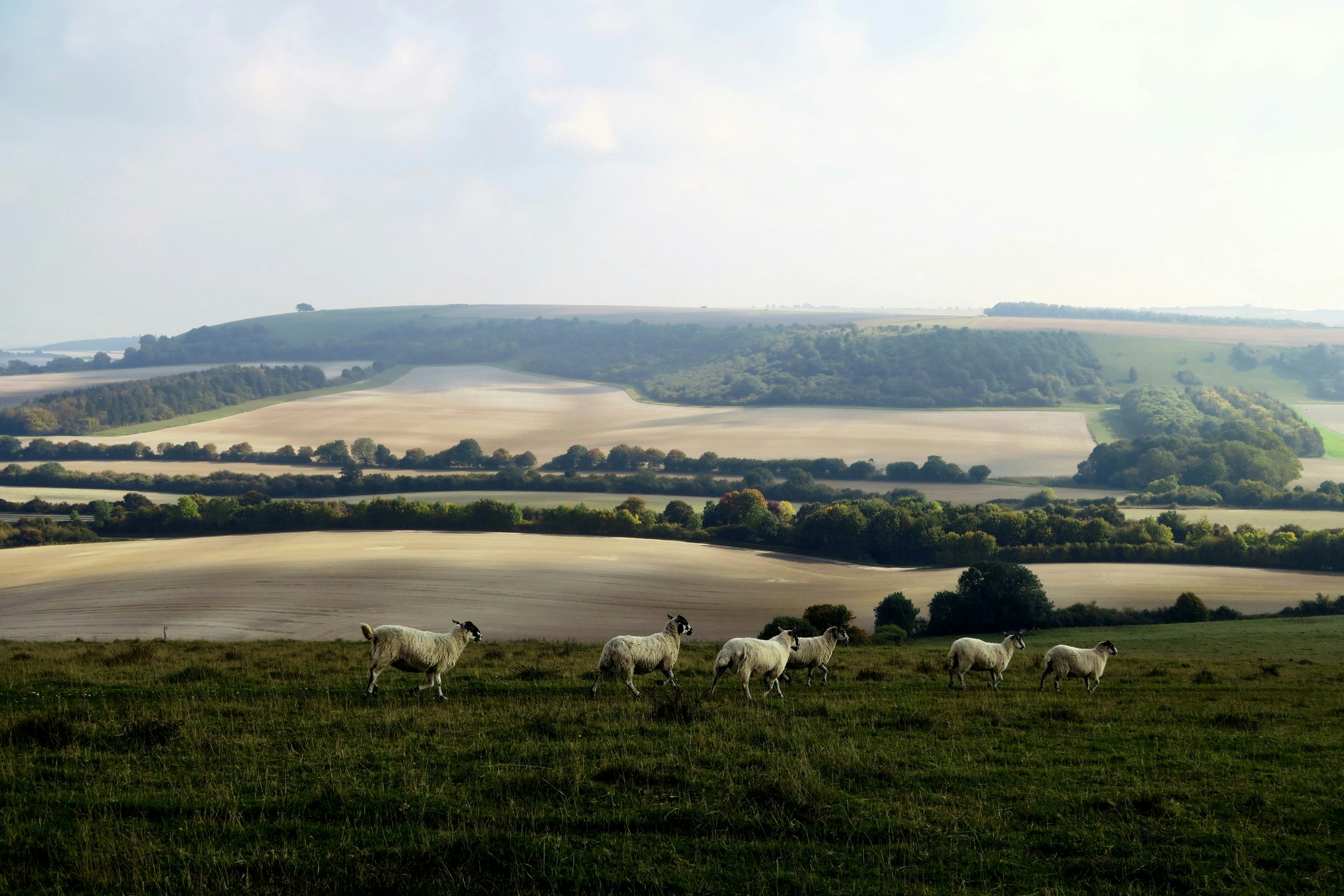Environmental sustainability is a central challenge for humanity. In areas of the United Kingdom water has been rationed in two of the last four years, partly because we have not managed to build a major reservoir for over 30 years. Not only greenfield, but also brownfield land on which housing could be built to ease our chronic shortage lies undeveloped. Fish stocks in some important species have dropped to dangerously low levels with high government-set catch levels aiming partly to preserve the UK’s fishing fleet. The carbon emissions strategy pursued by all recent governments has put the goal of achieving net zero by 2050 within reach, albeit at considerable, but perhaps now reducing, cost.
The first fruits of CEME’s programme on the economics and ethics of the sustainability challenge are published today. Markets and the Environment, by our Senior Research Fellow, Dr John Kroencke, considers what economic theory and the history of environmental policy tell us.
Good Understanding Means Strong Feelings
If we accurately grasp the scale of the challenge, we will immediately have strong feelings. One reason is that, once the fragility of the ecosystems in which we live is exposed, we see how precious they are. In Christian ethics we express this by saying that humankind and the world in which we live our earthly lives is part of a single created order, which the Creator lovingly holds in being. In the poetry of Genesis 1, God saw all that he had made, and it was very good.
A second reason is that sustainability challenges give us an insight into our own mortality and limitedness. In the earthier imagery of Genesis 2, our earthly bodies are of the same stuff as the dust of the earth. In that sense dust we are, and to dust we shall return.
A third reason is that we see stark trade-offs. The goods of conserving or regenerating ecosystems appear to conflict with other social goods. That is certainly a feature of all the UK challenges mentioned above. In these trade-offs we seem to face a certain loss, either of one kind of good, or of the other. We fear these losses in prospect. When they happen, they grieve us.
Ethics without Economics
These strong feelings can lead us into one of two unhelpful responses. The first could be called environmental absolutism. We all feel that sometimes. Looking at some part of the planet, which particularly strikes us at that moment in all its preciousness and fragility, we have what seems like a moment of moral clarity. We can make no trade-offs. The very idea of cost-benefit analysis seems out of place. ‘Conserve or regenerate this at all costs,’ we feel, ‘and let the heavens fall.’
Yet we do have to make trade-offs, not only between environmental and other social goals, but even between different environmental goals. So we need not only moments of moral clarity, but also a worked through ethics and theology which is integrated with, not insulated from, economic thought.
Economics without Ethics
Another unhelpful response is at the other extreme: what could be called laissez-faire fatalism. I suspect we all have moments of that too. It’s just too difficult, we feel, to work out these difficult trade-offs. If we try, there will be too much conflict, too much ‘politics’. Or, in a different version, the costs of environmental protection seem just too vast to contemplate: intuitively ‘it is just not worth it’. Surely ‘the market’, if left to itself, can work it out. Or can’t the economists just make the problem go away?
But that response will not work either. When we talk to economists about ‘leaving it to the market’, or indeed to them, they will first tell us that the losses in value caused by environmental harm will be in many cases far higher than the potential gains from the activities that cause it. They will tell us also about externalities and market failures. They will be disinclined to tell us what our environmental goals should be, and instead offer us efficient ways to achieve goals which we put to them.
They will also tell us that this kind of fatalism risks legitimising positions which have nothing to do with economics at all, but are rather forms of political posturing and the instrumentalisation of environmental policy for a broader ‘culture war’. This is one way one could see the 2024 manifesto pledge of the Reform Party to axe the UK’s Net Zero target, or the pause on renewable energy projects on federal land in the US. Economists can help us to get the economics right, but only if the politics and ethics of the debate permit that.
Market Phobia
Once we accept that we need to think both economically and ethically, we then need to avoid two mistakes in how we do so. The first could be described as market-phobic. It is markets, some might say, which have created these problems. Do we not all agree that environmental goods are often public goods? Do they not often function as externalities to markets in other goods, which therefore inevitably fail to value them? Should we not then use market mechanisms as little as possible in addressing them? Should we not look instead to decisions by politicians and government officials to design the necessary actions, such as reductions in pollutants or emissions, and command and enforce them through the coercive power of the state?
The problem with this response is that it both exaggerates the ability of the state to do this with any efficiency, and overlooks the potential gains from well-shaped markets. A well-shaped market will harness large amounts of real-time information, even as that remains decentralised. It will summarise this in the rich, responsive information of price signals. These will enable diverse and dispersed individuals and groups to align their voluntary actions. By preserving existing property rights, or generating new ones, it will provide incentives for enterprise and innovation.
This type of potential has often been lost due to crude regulation, such as: opposition to zonal pricing for energy; regulated prices for water use; and the failure to develop more than an embryonic market in credits for nutrient run-off caused by much-needed house building. On the other hand the extraordinary growth of solar energy generation in Texas, stereotypically a place of ‘cowboy’ spirit and free-market principles, illustrates the power of a well-shaped market.
Market Fundamentalism
A second mistaken response could be described as market-fundamentalist. Have we not learned from other sectors of the economy, others might say, of the perils of government control of economic activities? Do we not know the challenges of intermittent, centralised decision-making, and the likelihood of political capture of the process? Therefore a market solution is always to be favoured. The role of government should be as limited as possible, shaping a market with the largest possible scope, and leaving it to run.
The problem with this response is that it confuses a general, ideological claim with a specific, empirical one. Ideologically one can believe that markets generally have great benefits, while at the same time insisting on the need to consider what institutional arrangements will in fact best address each specific environmental challenge.
Comparative Institutional Analysis
A better way than these is suggested by the insights which won Ronald Coase a Nobel Prize in Economics. These are considered by John in Chapter 2 of his report. If we consider the relative merits of addressing an environmental challenge through governmental command and control, or through community-based self-governance, or through a market system, this should be seen as a choice between institutional arrangements.
The relative efficiency of these depends in large part on what economists call transaction costs. Coase’s contribution was to emphasise their significance. They include costs: to gather information about needs, counterparties, costs and prices; to establish property rights, whether over fish or water; to draw up, negotiate, monitor and enforce agreements; and to resolve disputes. These costs exist in all kinds of institutional arrangements, but in different patterns.
In Chapter 3 John develops Coase’s insight and applies it to environmental regulation. Since the pattern of transaction costs differs in each context, different institutional arrangements will be superior in different contexts. The arrangement selected can best be seen as an emergent solution to a specific environmental problem.
Implications for Business
This has implications for business-people. Sometimes they fear they will be perceived as complicating political solutions designed to cut-through and connect with the strong feelings mentioned at the outset. But John’s report implies that a more complex and nuanced debate is likely to be in the public interest. There is no substitute for close, comparative analysis. We need to relinquish the doctrinaire stances through which someone might try to short-circuit decision-making by, for example, putting trust always in the state, or always in an impersonally and abstractly conceived market.
At other times business-people fear that policy-makers or the public will see them as advocating for market solutions only because they suit them. Coase’s thought yields a framework for policymakers and citizens to distinguish proposals which offer efficient solutions, from narrowly self-interested arguments. This enables the formation of the durable coalitions needed to support long term investments. For example, on nutrient neutrality a well-designed market overcoming barriers to win-win trades between existing polluters and homebuilders could attract broad support.
Ethical Commitment
The need is for a real-world approach which keeps initial assumptions down, takes the trouble to understand the context without pre-emptively ruling anything in or out, and prioritises arrangements which best promote flourishing and welfare.
That allows the re-integration of economics with ethics. It certainly introduces an ‘anthropological’ element. In choosing between state, community or market solutions we will need to attend to what kind of state, community or market will in practice exist. That will depend in part on what kind of people are making decisions in the state, community or market, and how they relate to one another.
As Christians we have particular insights to offer. The impossibility of outsourcing our personal ethical responsibilities wholly to state or market arises from the irreducibly personal call God makes on our lives. Each of us must respond to the call to follow the way of Christ. We have each been given a will and a mind. With these comes the ability to make our own decisions – and an accountability for them.
The primary commitment to the welfare of our neighbours, rather than to any form of ideology, including economic ideology, is seen in the command to God’s exiled people to attend to their context and to work to improve it: to ‘seek the welfare of the city where I have sent you… and pray to the Lord on its behalf’ (Jeremiah 29.7). Indeed our cities in all their diversity do need our prayers – as does the City and its economic and commercial institutions – as well as our government and other communities.
We know that markets work, but also that they work in different ways in different contexts. Perhaps it’s time for some of us to stand up as ‘Christian Coaseans’, committed to tackling environmental challenges, and committed also to the hard work of comparing solutions and championing the most effective.

Revd. Dr. Philip Krinks is the Director of CEME.

